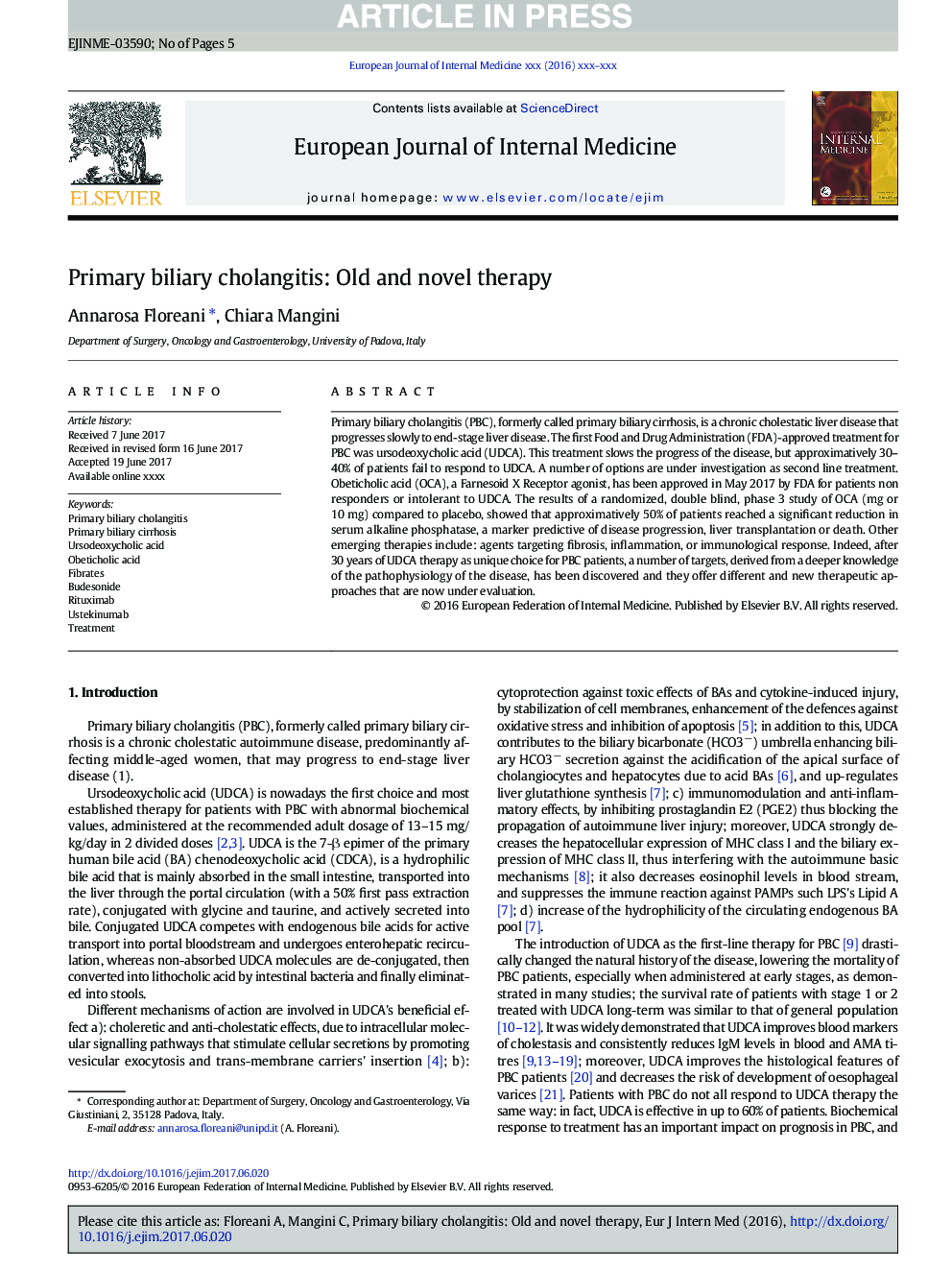| Article ID | Journal | Published Year | Pages | File Type |
|---|---|---|---|---|
| 8758136 | European Journal of Internal Medicine | 2018 | 5 Pages |
Abstract
Primary biliary cholangitis (PBC), formerly called primary biliary cirrhosis, is a chronic cholestatic liver disease that progresses slowly to end-stage liver disease. The first Food and Drug Administration (FDA)-approved treatment for PBC was ursodeoxycholic acid (UDCA). This treatment slows the progress of the disease, but approximatively 30-40% of patients fail to respond to UDCA. A number of options are under investigation as second line treatment. Obeticholic acid (OCA), a Farnesoid X Receptor agonist, has been approved in May 2017 by FDA for patients non responders or intolerant to UDCA. The results of a randomized, double blind, phase 3 study of OCA (mg or 10Â mg) compared to placebo, showed that approximatively 50% of patients reached a significant reduction in serum alkaline phosphatase, a marker predictive of disease progression, liver transplantation or death. Other emerging therapies include: agents targeting fibrosis, inflammation, or immunological response. Indeed, after 30Â years of UDCA therapy as unique choice for PBC patients, a number of targets, derived from a deeper knowledge of the pathophysiology of the disease, has been discovered and they offer different and new therapeutic approaches that are now under evaluation.
Keywords
Related Topics
Health Sciences
Medicine and Dentistry
Medicine and Dentistry (General)
Authors
Annarosa Floreani, Chiara Mangini,
